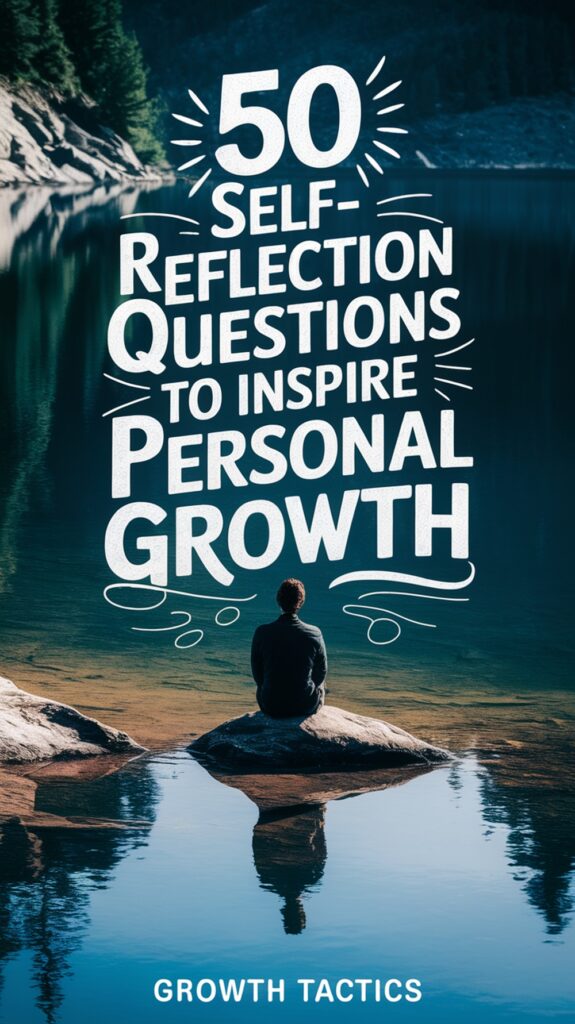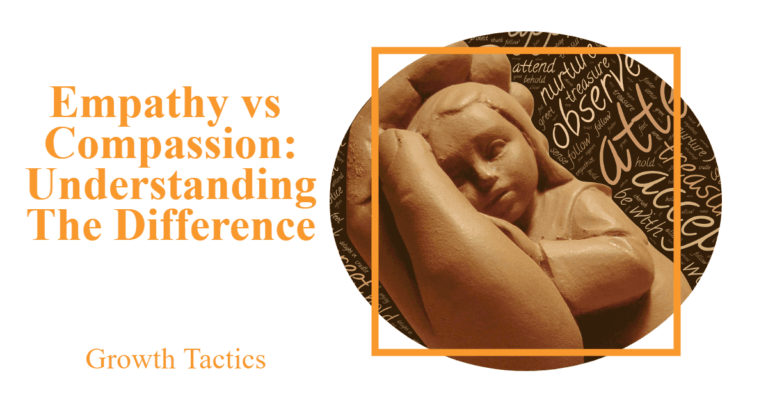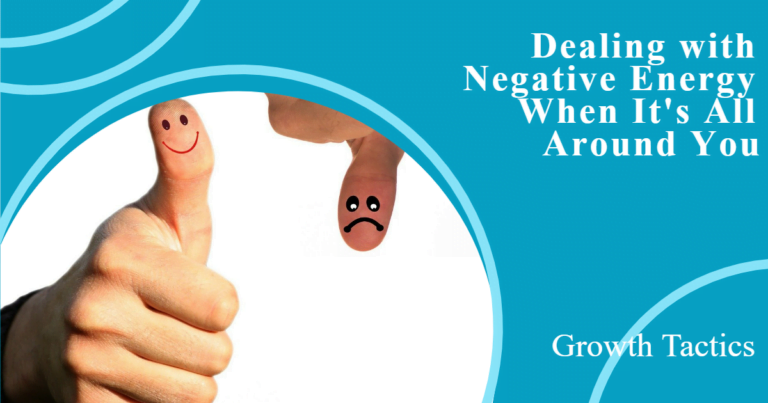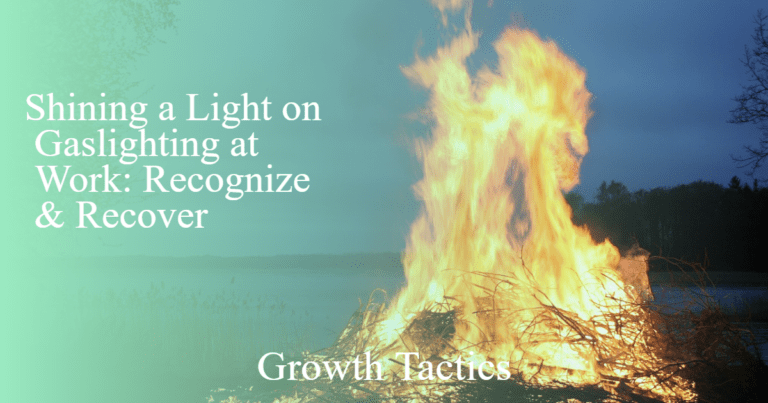Asking yourself self-reflection questions regularly is transformative, and it can help you find clear direction and focus on your path to personal growth.
Whether navigating career challenges, improving relationships, or simply understanding yourself better, these questions offer a structured way to pause and evaluate your inner world. In this post, we’ll list multiple questions to help shift your lens and inspire you to drive the change you want in life.
Let’s get right into it.
Jump To Section
1. Questions to Understand Yourself Better

These self-reflection questions lead you to your true self and bring to light deeper passions, goals, and motivations. In fostering acceptance and greater self-awareness, they help lay the groundwork for finding personal clarity.
- What is my favorite way to spend a free day?
- What does success look like for me, outside of what society or others may expect of me?
- What kinds of activities or collaborative environments contribute to my highest energy and engagement?
- What are my values and how do they affect me?
- What fears are preventing me from chasing my dreams?
- What does happiness mean to me, and how can I obtain it?
- What are my strengths, and how can I leverage them more?
- How do I respond to failure, and what do those experiences teach me?
- Where does self-care fall in my list of priorities, and am I giving it enough emphasis?
- Where do I see my life in five years, and how do I get there?
2. Questions to Evaluate Your Goals and Aspirations

When tailored to focus on meaningful pursuits, these questions can lead to powerful clarity and alignment between what we do and what we truly value. They help inspire you to continue to be committed to your own journey.
- Are my goals in line with what I want to achieve most?
- What outcomes do I want to accomplish, and what’s the purpose?
- Do my goals reflect my values?
- What obstacles have I run into, and how can I overcome them?
- In what ways do my ambitions express my true self?
- What does success look like to me at various points in my life?
- How do I track advancement toward my objectives, and does that method work?
- What am I prepared to give up for my dreams?
- How frequently do I review my objectives to keep them on track?
- What gets me going in pursuit of my goals, and what can boost that?
3. Questions to Reflect on Relationships

These prompts deepen understanding, build empathy, and reveal opportunities for development, allowing us to address misunderstandings and cultivate more positive relationships.
- Am I surrounding myself with people who uplift me and want me to flourish, or suck the life out of me?
- In what ways do I need to better communicate with the people I’m closest to?
- How do the people in my life affect my self-esteem/self-worth?
- How do I enhance or damage my relationships?
- What boundaries do I need to set for my mental well-being?
- How good a listener am I, and how can I become better?
- What values do I have in common with my best friends or family members?
- How do I deal with conflict, and what can I do to find healthier solutions?
- Who inspires me in my relationships, and what can I learn from them?
- How can I be more openly appreciative of those I care about?
4. Questions to Process Emotions and Experiences

These understandings foster emotional resilience and mindfulness that can be healing, while fostering a sense of balance with and in the present.
- What has the power to ignite my deepest feelings, and what’s my knee-jerk reaction?
- In what way has a negative experience contributed to my positive perspective today?
- What recurring feelings do I feel, and what sparks them?
- How do I deal with stress, and does it work?
- How do I share or hold back my feelings, and for what reasons?
- How have past experiences influenced my current feelings?
- What hard-won lessons can steer me going forward?
- How do I practice mindfulness in my daily life, and is it making a difference?
- What role does vulnerability play in my emotional well-being?
- How can I communicate my emotions to others for greater comprehension?
5. Questions to Foster Gratitude and Positivity

Gratitude reflections foster positive emotions and help alleviate stress while restoring attention to all the rewarding elements that life has to offer.
- What small moments of joy did I experience today?
- Who or what am I most grateful for in my life?
- What things, large or small, am I proud of today?
- How do I take myself out of a negative frame of mind and put myself into a positive one?
- Who’s made a difference in my life, and how can I express my gratitude?
- What makes my life most joyful, and how can I nurture them?
- How do I celebrate small wins in my life, and why is that important?
- How would gratitude help my relationships with others?
- How do I keep a positive mindset through hard times?
- What new experiences or opportunities am I thankful for this week?
How to Use Self-Reflection Questions Effectively
Self-reflection questions are incredibly useful tools for fostering reflection and personal growth, but they are only as good as how they are applied. A little thoughtfulness, accompanied with a little practice, can open the door to a greater understanding of yourself and help you drive real positive change.
Read on for tangible tips on how to get the most out of this valuable practice.
Setting the Right Environment for Reflection
A calm, distraction-free space is important to allow for deeper reflection. This might be a quiet nook at home, a bench in the park, or wherever you are least likely to be disturbed.
Mindfulness practices such as deep breathing or meditation are useful to center your mind prior to beginning. Incorporating calming influences, like diffused lighting, calming music, or nature, contributes to a tranquil setting.
Lastly, and perhaps most importantly, make sure the environment is a safe, comfortable space where you can let your mind wander and explore your thoughts freely. While driving may be a great time to reflect, you can’t get too deep into thought and maintain focus on the road.
Choosing Questions Based on Your Needs
Consider focusing on one of these areas of life. For instance, ask “What did I learn from today’s challenges?” for personal growth, or “Am I aligned with my career goals?” for professional development.
Address present, personal issues such as developing better connections or coping with anxiety. First, select the questions that seem most pressing or relevant today.
Balancing Honesty and Compassion in Answers
Being honest is essential, but don’t be overly hard on yourself. Show yourself compassion by thinking of what you got wrong like a chance to learn and grow.
Replace judgmental or critical questions with constructive self-reflection ones, for example, “Why did I fail?” should be reframed to, “What can I learn from this?” Focus on the positive.
Celebrate even the smallest accomplishments to keep a hopeful attitude.
Incorporating Reflection into Daily Routines
Consider setting aside 15-30 minutes each day to engage in this reflection, either in the morning or at night. Whether through journaling or guided prompts through meditation, this practice can deepen insights gained.
Whatever the method you choose, consistency is key. When you practice reflection consistently, it becomes a habit, and deeper self-discovery will follow.
Exploring Alternative Methods of Reflection
Where traditional journaling creates space for structured introspection, meditation helps to clarify by quieting the mental chatter. More creative approaches, such as art or freewriting, allow for emotional expression to flow freely, especially for participants who may have a hard time with direct approaches.
Trying new approaches to reflection can lead to deeper self-reflection and help keep the experience fun. Whether through intention-setting reflective conversations or body-based practices such as yoga, embodied reflection can meet a variety of needs and preferences.
Encouraging Deeper Reflection Through Follow-Up Questions
Questions like “Why should I care about this?” and “What trends am I seeing?” help to dig deeper and find the gold nugget. They encourage deeper reflection and critical thinking.
Studies indicate that people generally prefer guided prompts, and the reflections they produce are deeper, more useful, and actionable than those created from open-ended prompts. These questions are intentionally designed to challenge assumptions, broaden perspectives, and align actions with values.
Overcoming Challenges in Self-Reflection
Though self-reflection can be immensely fulfilling, challenges may arise for many people. Overcoming the storm of over-analysis requires time, self-kindness, and practical methods. Below, we look at how to overcome some of these challenges to self-reflection.
Addressing Fear of Facing Difficult Truths
This fear typically comes from the prospect of sitting with the challenge of difficult emotions or acknowledging previous missteps. Self-compassion makes this process a little easier, as we learn to respond to our shortcomings not with self-judgment, but with kindness.
For example, instead of making a misstep an indictment of your character, reframe it as an opportunity to advance. Focusing on smaller, less overwhelming truths with more manageable reflections is another strategy.
Mindfulness practices and/or counseling can complement this work, providing more support and safe spaces for developing emotional processing free from judgment.
Avoiding Overthinking or Analysis Paralysis
Overthinking or analysis paralysis can make self-reflection a process of rumination. Limiting reflection periods, 15 minutes or so, preferably with a timer, keeps people on task without risking their brains becoming mush.
Shift your mindset to focus on actionable insights by asking questions such as, “What’s one thing I can do better today?” Techniques like journaling can channel overwhelming thoughts into organized, creative stories.
Balancing reflection with action makes certain that new insights will contribute to progress, not stagnation.
Staying Consistent Without Feeling Overwhelmed
As with any practice, consistency is important, though it may seem overwhelming. Begin with something manageable, maybe a 5-minute daily reflection, and build from there.
Whether that’s morning meditation or evening journaling, make it work for you. Lower the bar so you don’t burn out, and savor the progress, such as gaining new skills to cope with feelings.
Small wins create a snowball effect and help cement new, productive habits.
Practical Tips for Long-Term Growth Through Reflection
When incorporated into the rhythms of everyday life, reflection helps reveal patterns, monitor progress, and more effectively pilot life’s transitions.
Here are some concrete ways to institutionalize reflection as an ongoing practice.
Tracking Progress Over Time
Creating a written record of your reflections allows for deeper learning and understanding. Consider the journal or app as an archive for your personal growth, allowing you to process and capture reflections, feelings, and experiences.
For example, you might even start writing short answers to prompts such as “What surprised me today?” This practice goes a long way towards establishing a rhythm, routine, and structure. Looking back on past entries can help identify patterns, like what causes you to feel emotional or what you’re grateful for, which can help inform future choices.
Revisiting Past Reflections for Insights
Revisiting past reflections for new insights can be surprisingly enlightening. Not only does it provide perspective on how far you’ve come, but it forces reflection on key lessons learned.
Use recurring themes, such as common stressors or places that bring you joy, to sharpen your aspirations. Going back to written reflections when encountering new challenges helps to uncover strategies that have been successful in the past, connecting historical knowledge with current reality.
Using Self-Reflection to Adapt to Life Changes
Life changes, and so should our reflection practices. During transitions, like starting a new job or moving to a new city, questions like “What excites me about this change?” or “What challenges might I face?” can provide clarity.
Be flexible and adjust your methods to align with changing schedules or interests. Reflection empowers you to bounce back. From learning to seek joy in your new surroundings to navigating doubt, it prepares you to align your actions with evolving goals and values.
Conclusion
Self-reflection is a sacred practice that opens the door to wisdom, evolution, and more authentic relationships with ourselves and each other. By asking the right self-reflection questions, we signal that we are ready to dig deeper. This paves the way for deeper self-awareness and more purposeful existence.
Whatever your spiritual tradition, you can develop it through journaling, meditation, or structured reflection exercises. As you start down this path, understand that change does not happen overnight and requires patience. With practice, self-reflection can be a foundational practice in your journey of introspection that will allow you to live with intention and conviction.








